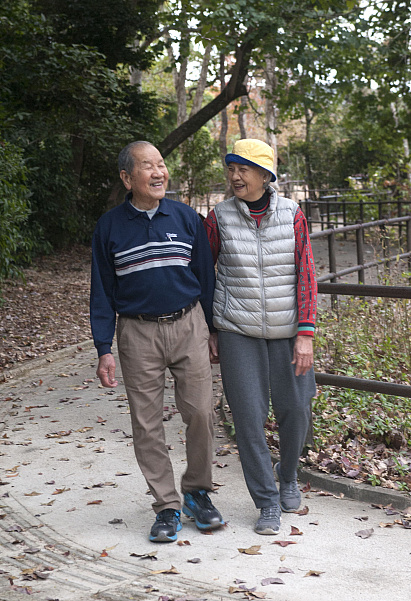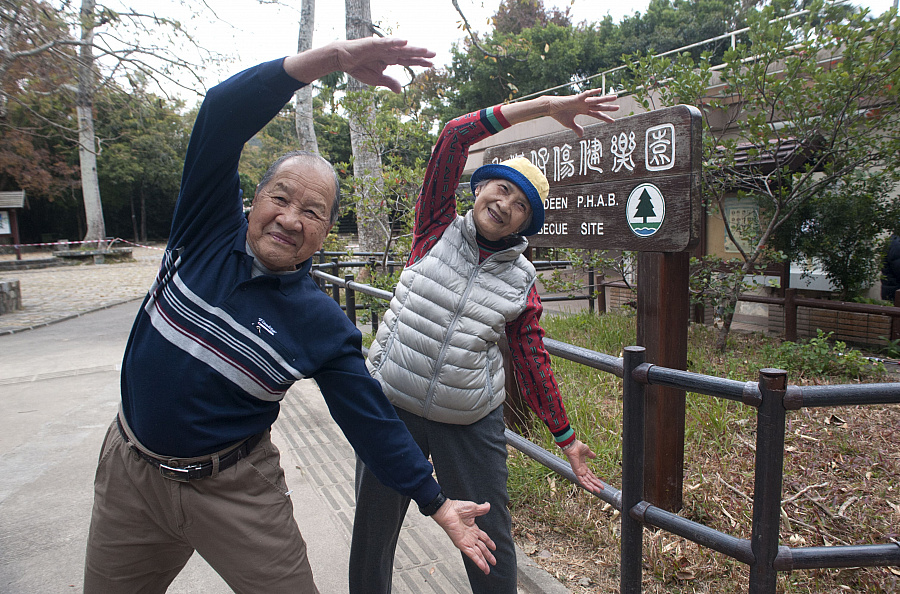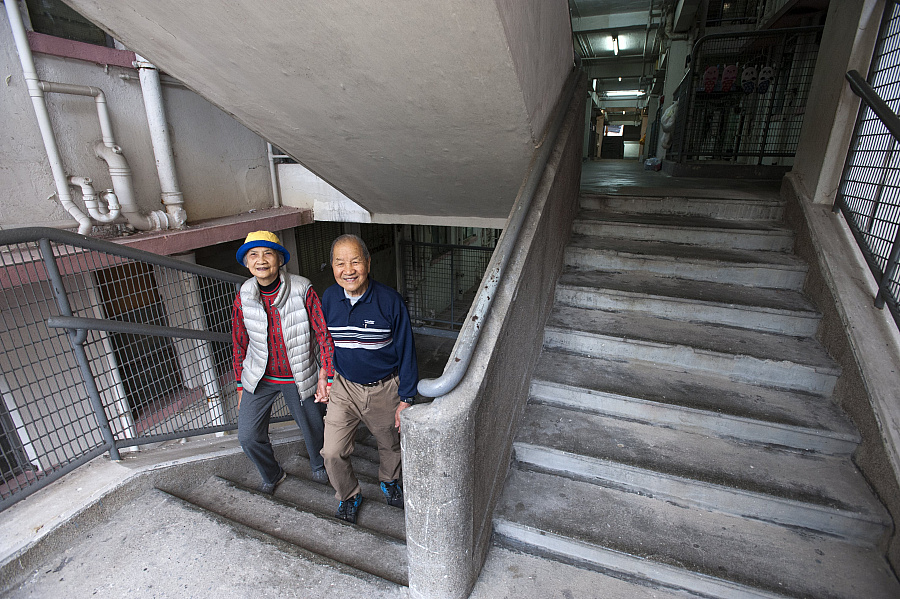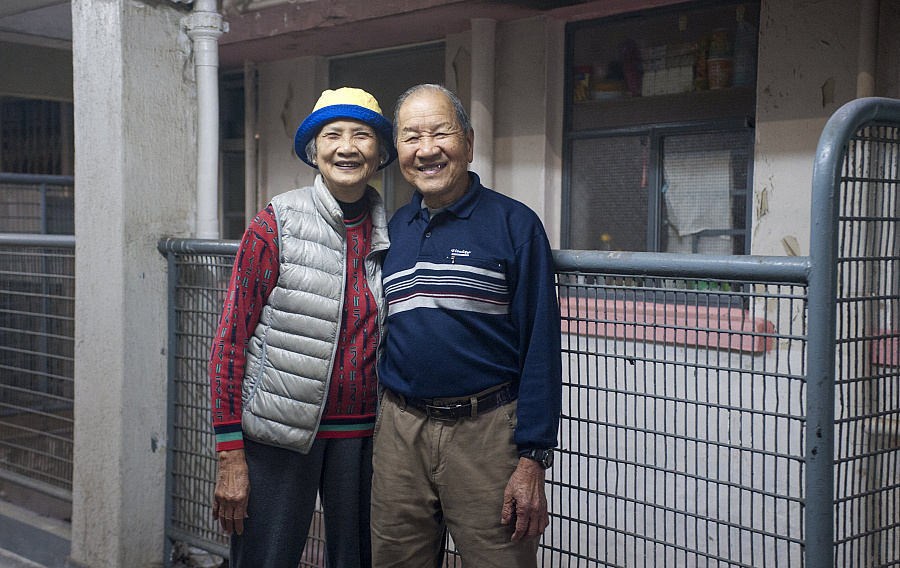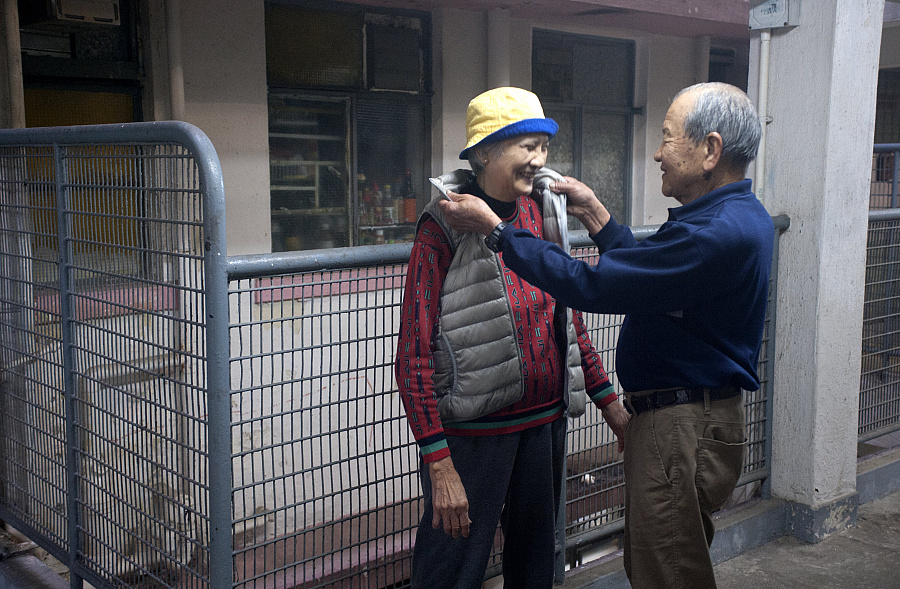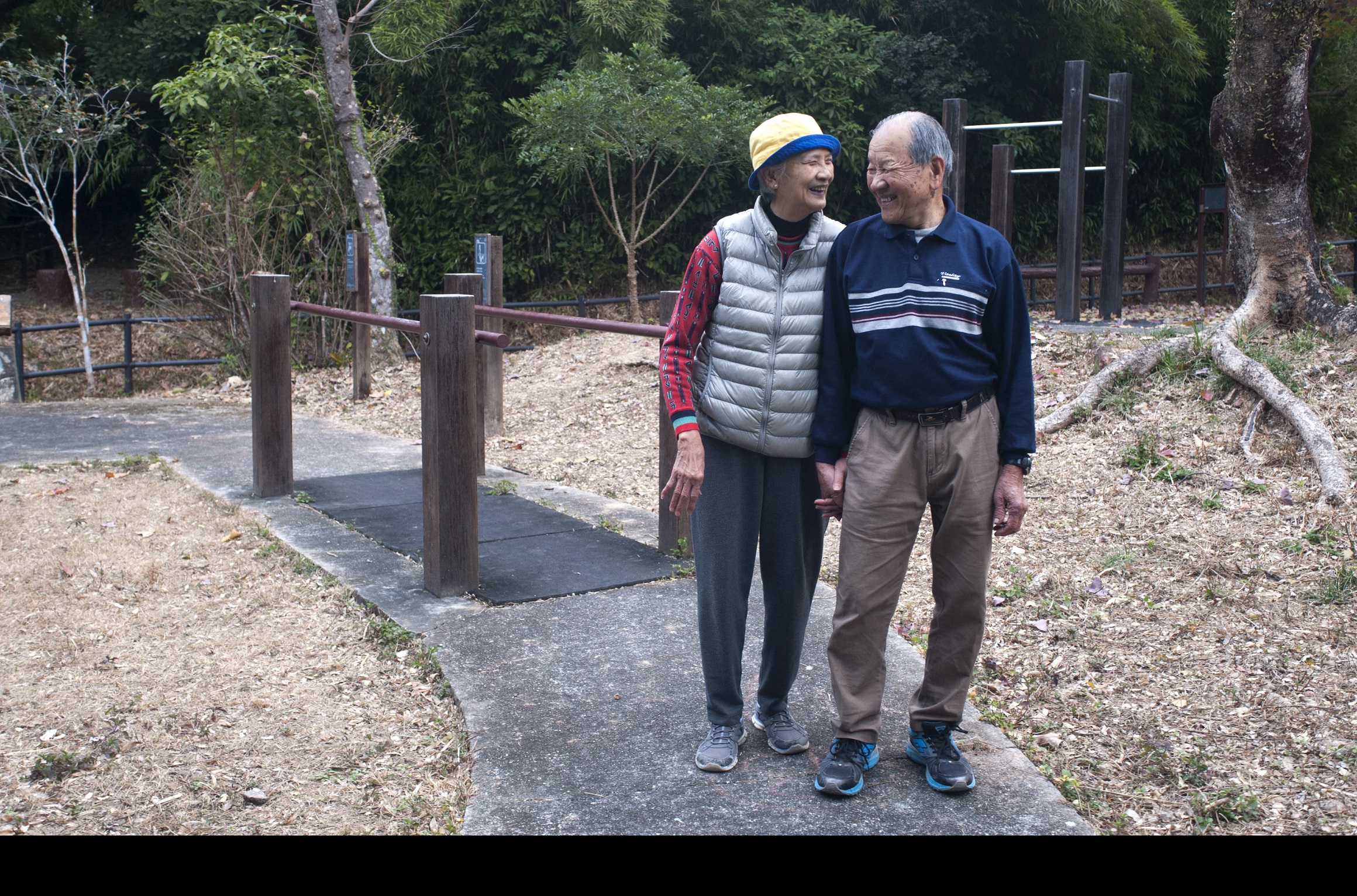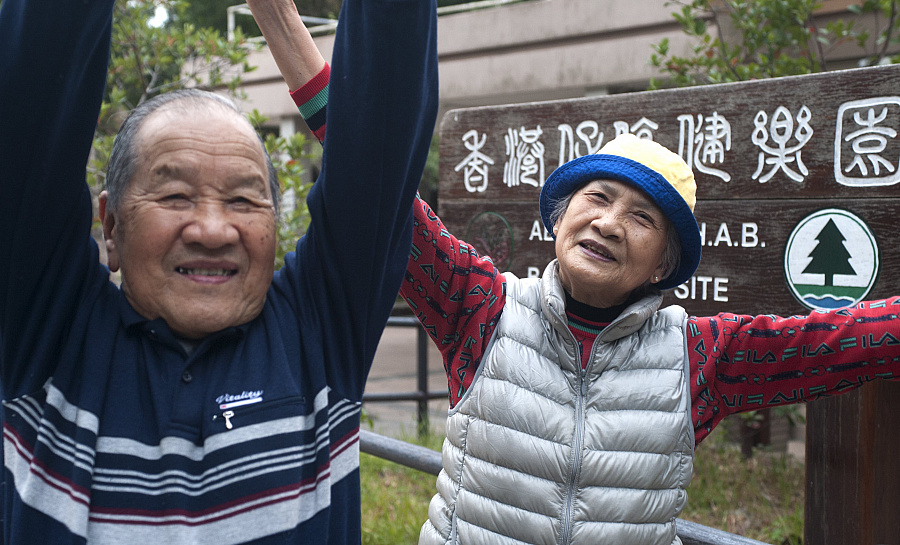LAM Yuk King, aged 83, is a first generation resident at Yue Kwong Chuen and has been living there since 1963. She is married to YUEN Pui Tong.
YUEN Pui Tong, aged 87. He was a taxi driver before his retirement.
*****
Every morning before the sunrise, Lam Yuk King and her husband Yuen Pui Tong talk a walk to the Aberdeen Reservoir. They usually leave home at 5 a.m. and return at 8 a.m. Upon reaching the reservoir, Lam does her morning exercise. Sometimes, Yuen stays by her side, and at other times he walks the extra mile to Wan Chai Gap. This has been their common habit for over a decade, which started sometime after Yuen retired. If they were to move one day, the fresh air around the reservoir is something they would definitely miss.
Now in their eighties, the couple has lived in Yue Kwong Chuen for nearly six decades. They are the first generation of residents that have settled here. Before coming to their current home, they lived with their kids in a cubicle apartment in Wan Chai. There were no windows and the toilet was shared with owner and another tenant. As Lam says, “People say that living in subdivided flats is difficult. But at least people have their own toilets now. We didn’t even have that back then!”
Back then, Yuen was a chauffeur to a doctor. The doctor was so kind as to cure Lam of her pulmonary hydrops, and to help them apply for the Housing Society’s low-cost housing. In 1963, the Yuen family moved to the newly-built Hoy Kong Lau of the estate. Although it was still a shared toilet, it was already much better than the cubicle in Wan Chai. As Lam recalled, “The common kitchen was so big. It was such a happy crowded place, and we each had a stove to ourselves!”. Since their kids were still quite small, Lam had to keep an eye on them even while cooking. She installed a wooden board to block the doorway so that her kids wouldn’t leave the house unattended.
The next year, the Yuen family moved to the nearby Pak Sha Lau, which was an ensuite unit. As their livelihood improved, Lam gave birth to their third child. On weekdays, Lam’s eldest daughter attended kindergarten in the village and Lam brought her two sons to the wet market. “It was not easy to carry one boy while holding onto the other,” Lam recalled. The Yue Kwong Road Market was yet to be built, and the hawkers stationed their stalls on the Aberdeen Reservoir Road – or “the slope” as Lam called it. The wet market – which sold meat, fruits, seafood, poultry, brooms, towels, and bedsheets – could satisfy the daily needs of the residents in the village.
As night fell, “the slope” would become a quiet place. Only the stall which sold congee and wonton noodles was still open. The hawker stationed his wooden trolley, set up his kerosene lamp, table and a few chairs, took orders and prepared the food. The aroma of the boiling congee enticed quite a few residents from the couple’s building to join the queue. Lam says the food is quite good, but their family seldom visited, “Most of the time we cooked our own meals. After all we only had one breadwinner to feed five mouths. It was not easy.”
Their children have since grown up and only husband and wife remain in Yue Kwong Chuen. But they never feel alone, since they knew all the old kaifong and workers around the district. “People treat me very well, thank God.” Lam is especially fond of the garden right outside their window, “There’re orange trees and papaya trees…and the papaya taste very sweet”. In order to stay close to the garden, the couple are not willing to move to nearby flats which had escalators. Tin Wan, which lies even further away, is of course out of the question. “How could we take our morning walks if we live in Tin Wan?” In spite of the long years, Lam remains fond of everything here in Yue Kwong Chuen.
